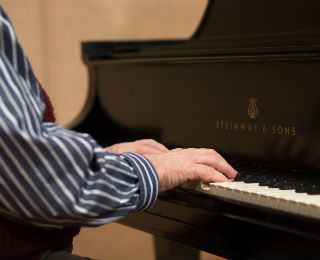Published: March 2, 2015
 Learning takes place throughout a lifetime beginning in childhood, It takes place in different situations in and out of the classroom through interactions with others and the world around us. It is a fact that healthy lifestyle habits include brain fitness, and opportunities for new learning experiences challenge and stimulate the brain.
Learning takes place throughout a lifetime beginning in childhood, It takes place in different situations in and out of the classroom through interactions with others and the world around us. It is a fact that healthy lifestyle habits include brain fitness, and opportunities for new learning experiences challenge and stimulate the brain.
The rewards of lifelong learning can expand your knowledge, challenge your viewpoint, provide enjoyment and add to your quality of life. Retirement is a perfect time to explore the possibilities that lifelong learning provides.
Delving into a subject that you have always wanted to learn more about or something completely new may help develop inherent aptitudes you never knew existed. Lifelong learning can inspire and pique your curiosity, expand your horizons and engage you for years to come.
As Marcel Proust said “The real voyage of discovery consists not in seeking new lands, but in seeing with new eyes.” –
Take a College Course
Public libraries offer convenient and engaging classes for people of all ages. Community, state, and private colleges and universities offer a wide variety of courses that emphasize active class participation by older adults. The intergenerational aspect of some of these classes can provide different perspectives and thought provoking discussion.
Make Music
Maybe you once played the piano or another instrument, or just wished you had. This may be the time to either reacquaint yourself, with that violin, or learn to play an instrument for the first time. Amateurs or new students, who pick up an instrument later in life, defy the “can’t teach an old dog new tricks” adage. Playing a musical instrument challenges both the mind and body, and think of the enjoyment it can bring you.
Music institutes and conservatories often have musicians, who take on students for private lessons. Music teachers can be found in most communities.
Try Yoga, Tai Chi or…
Yoga and Tai Chi offer exercise for both mind and body. According to the Mayo Clinic, Tai Chi helps reduce stress and anxiety, and increases flexibility and balance. Often described as meditation in motion. Tai chi promotes serenity through gentle flowing movements
Yoga is another mind-body practice, which combines stretching exercises, controlled breathing and relaxation. Yoga can reduce stress, lower blood pressure and improve heart function. Both yoga and tai chi are popular today, so finding a qualified teacher recommendation should not be difficult.
As one of our values in practice, residents and staff together nurture a culture of continuing learning through shared experiences, classes, speakers and performances at Kendal at Oberlin. In addition, Oberlin College and its Conservatory of Music, which is walking distance from Kendal, offers residents many lifelong learning opportunities. Click here to learn more about the benefits of retiring to a college town.





